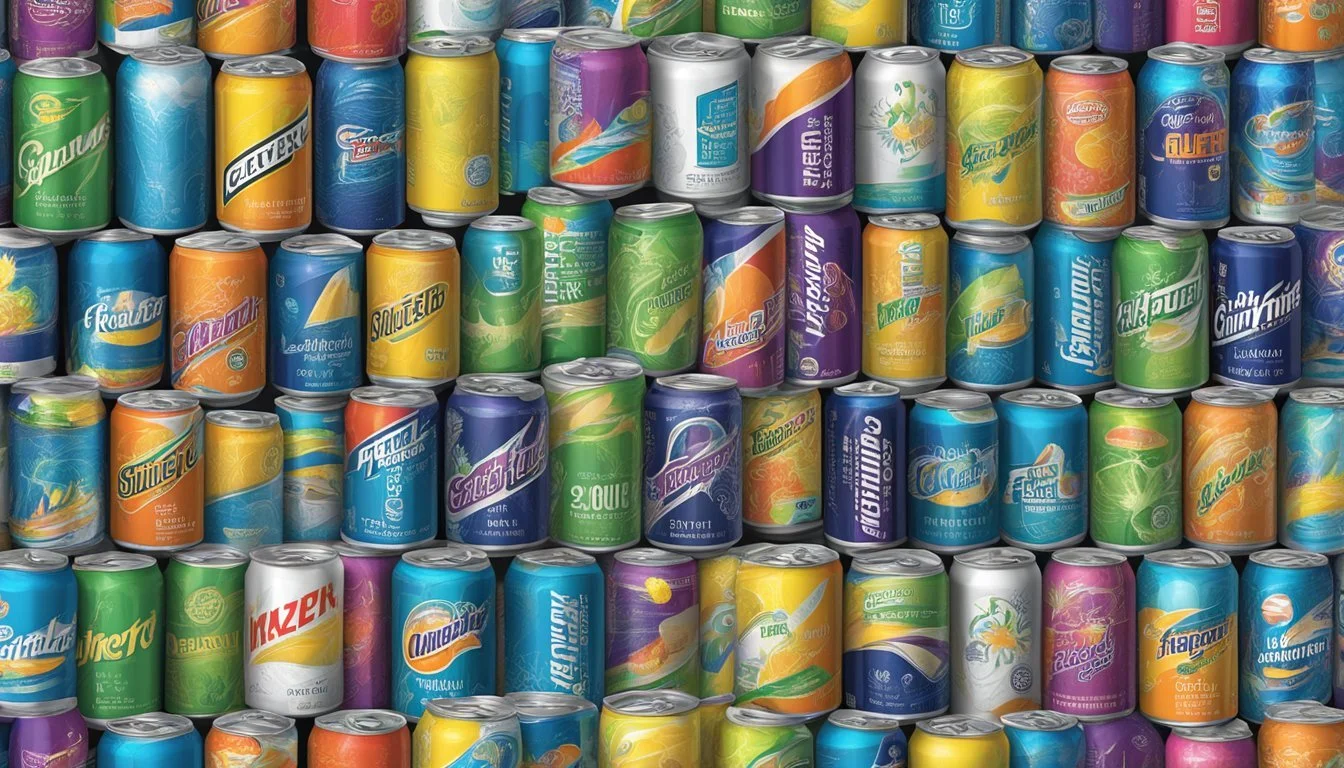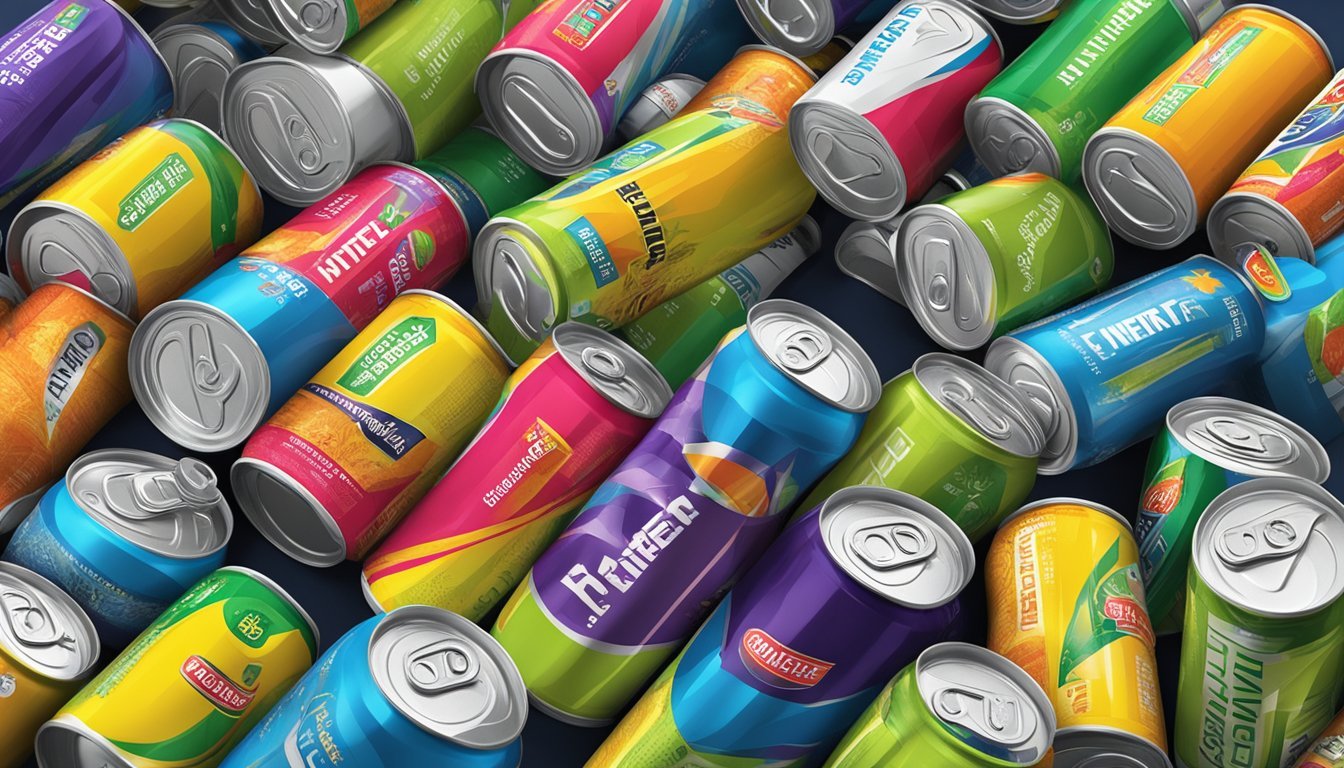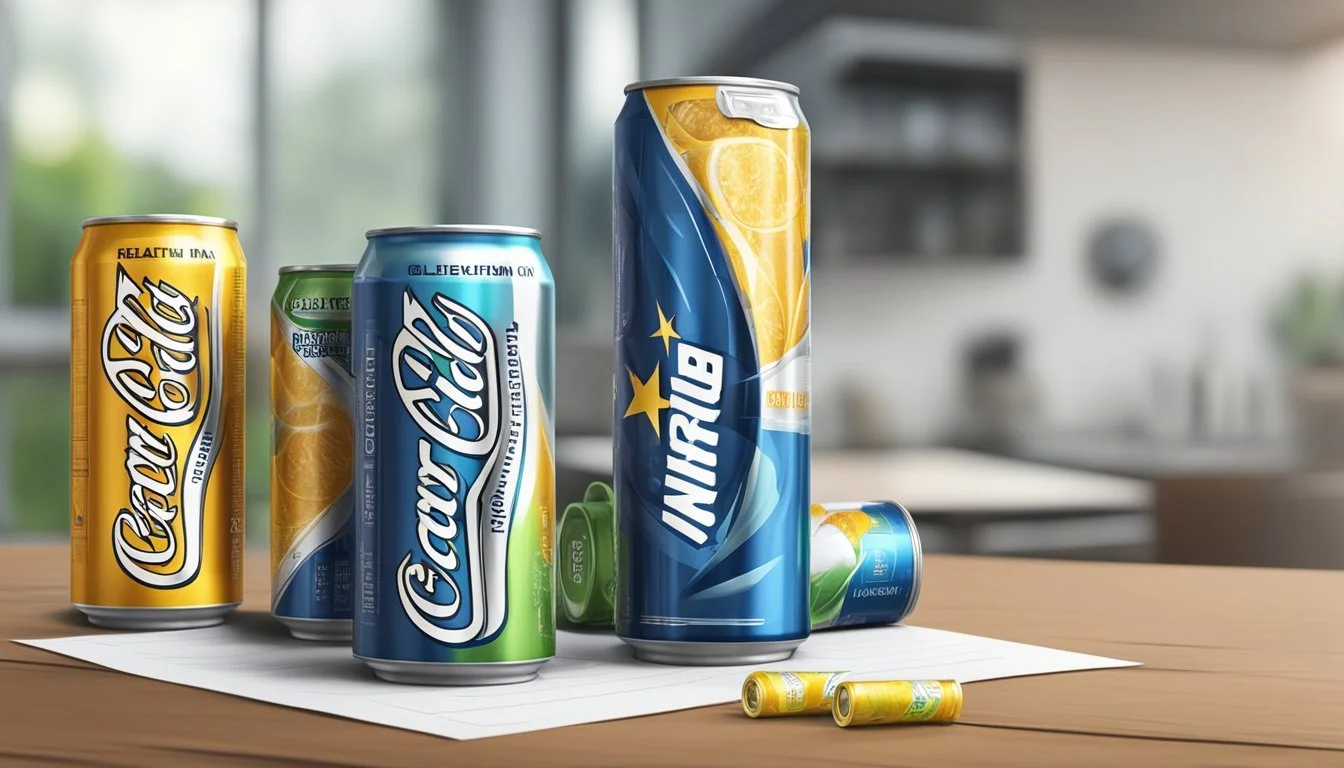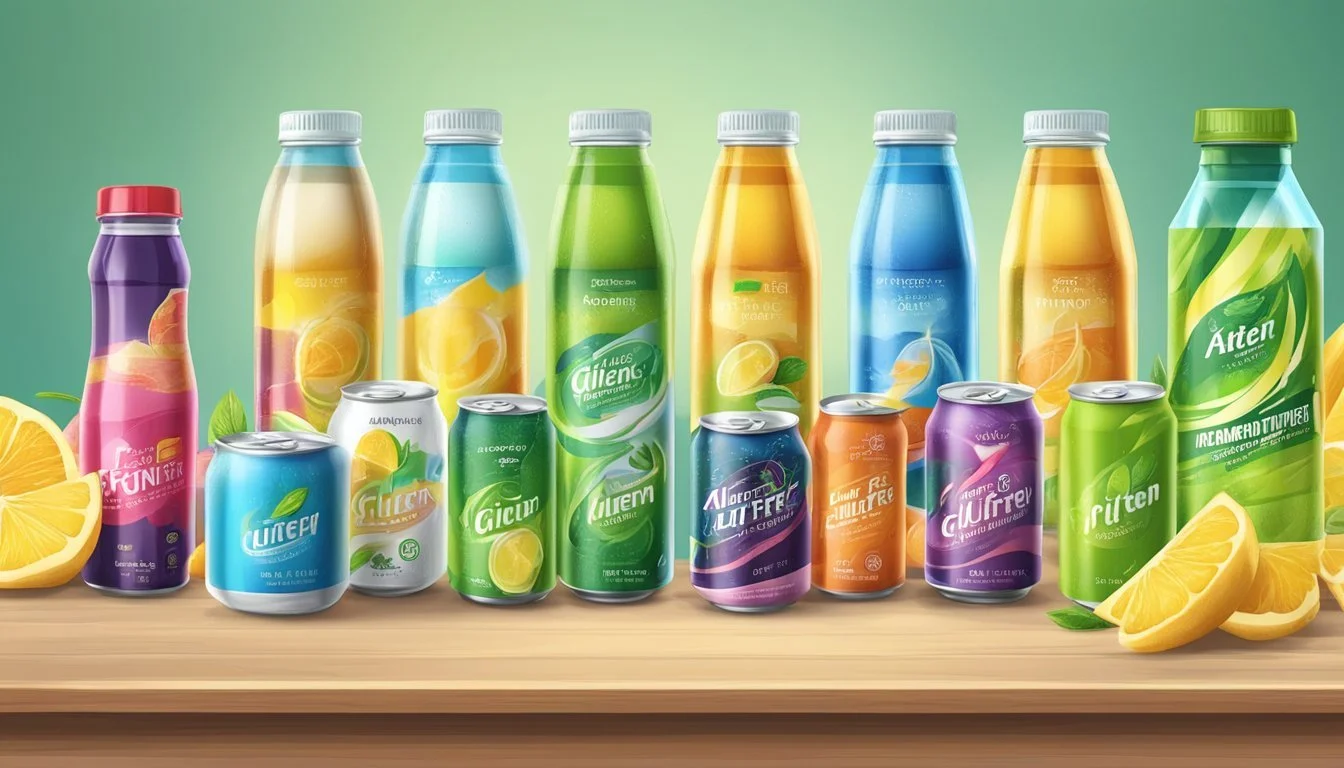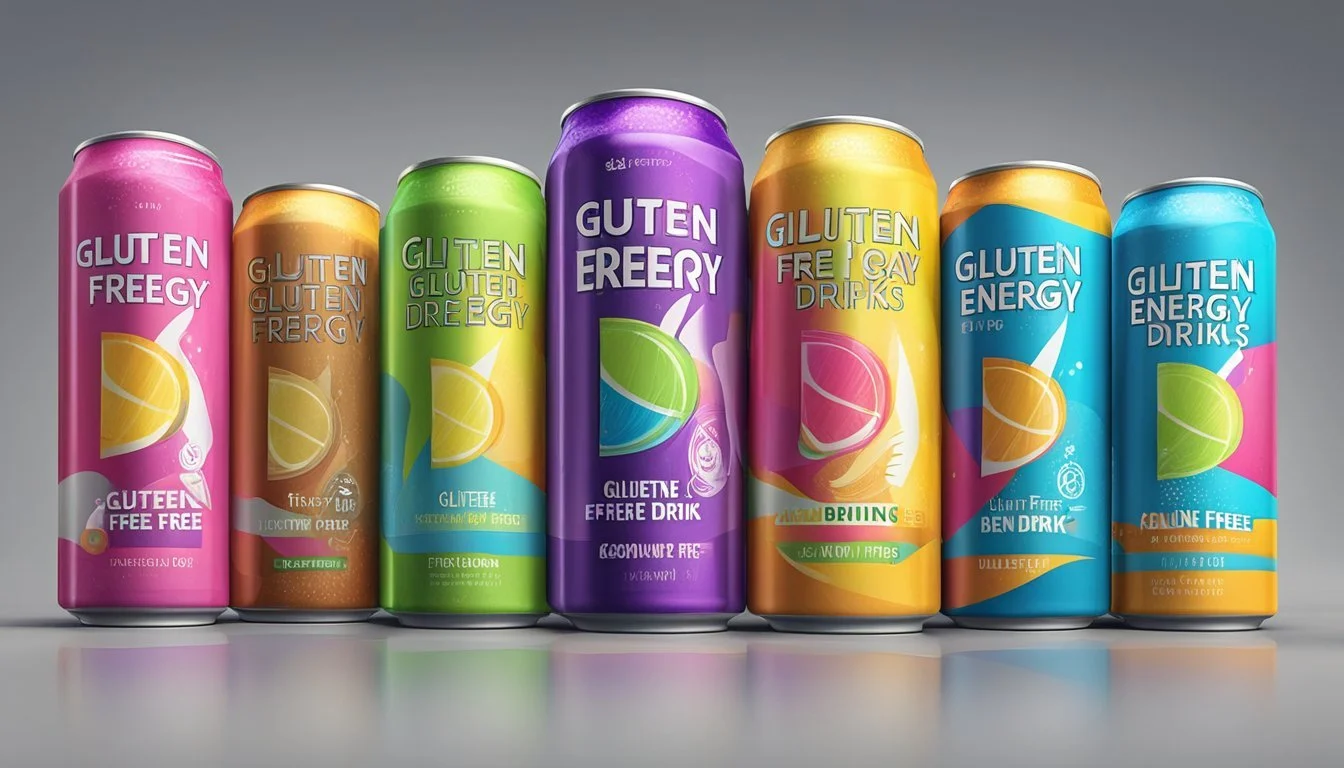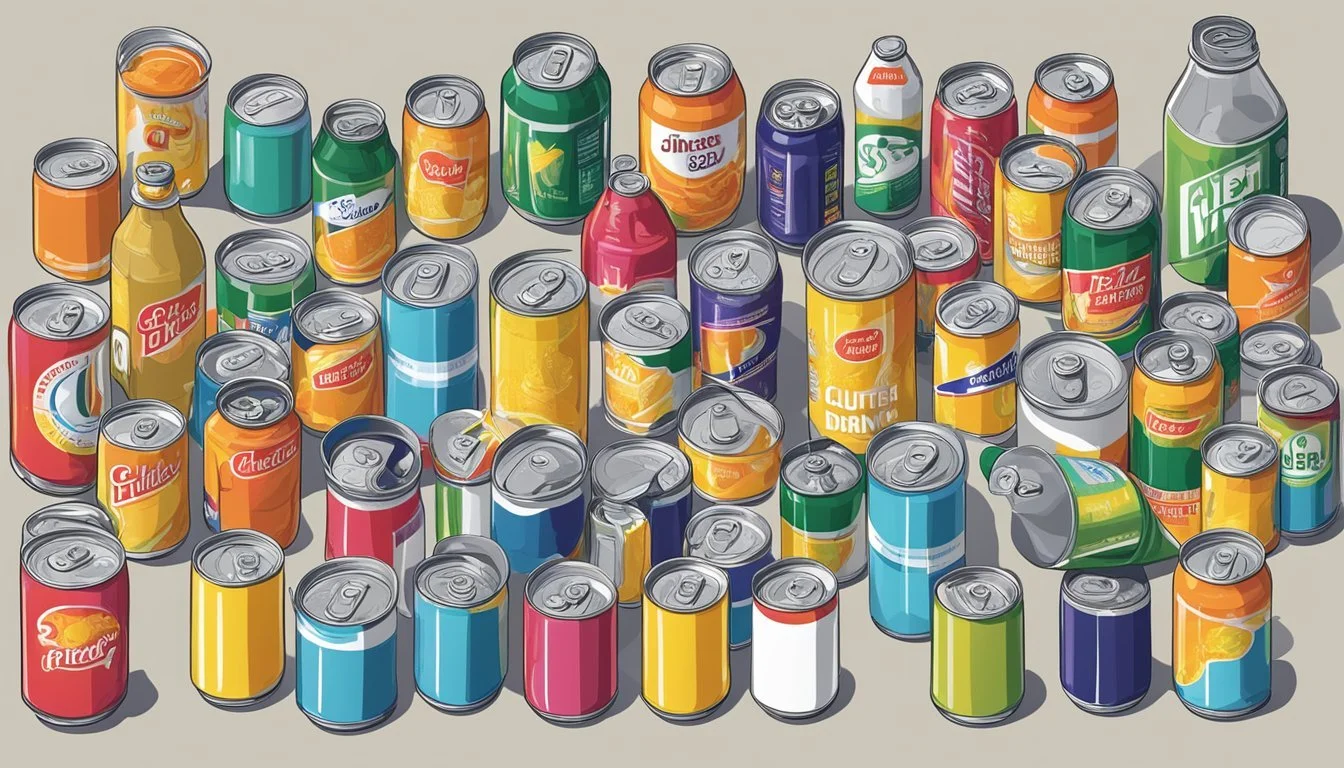Are Energy Drinks Gluten-Free?
Understanding Their Ingredients and Safety
In recent years, the popularity of energy drinks has surged, offering consumers a quick boost of energy with the convenience of a ready-to-drink beverage. Despite the variety of options available in the market, individuals with celiac disease or gluten sensitivity navigate their choices with caution due to dietary restrictions. It is imperative for them to know whether energy drinks contain gluten—a protein found in wheat, barley, and rye—to avoid adverse health effects.
Most energy drinks are marketed as gluten-free, catering to the growing demand for products that are safe for individuals with gluten intolerance. These beverages typically comprise a blend of stimulants, such as caffeine and guarana, vitamins, and flavorings, which, in their pure forms, do not contain gluten. However, due diligence is always recommended as certain additives or flavorings might introduce gluten into the drink.
The industry has seen a trend in clearly labeling gluten-free products, with many brands like Red Bull and HiBall Energy explicitly stating their beverages meet gluten-free standards. While these options provide reassurance, consumers are advised to always check labels and ingredients lists carefully, as manufacturing processes and formulations can change, posing a risk for cross-contamination or the inclusion of gluten-containing compounds.
Understanding Gluten and Its Sources
This section provides an essential look at what gluten is, where it is commonly found, and the health conditions related to gluten consumption.
What Is Gluten?
Gluten is a group of proteins, primarily glutenin and gliadin, found in grains such as wheat, barley, and rye. It acts as a binder, holding food together, and it can provide a chewy texture.
Common Sources of Gluten
The primary sources of gluten are grain-based foods including but not limited to:
Wheat products (e.g., bread, pasta, cereals)
Barley (used in malt vinegar and some alcoholic beverages)
Rye (common in rye bread and rye beer)
A gluten-free diet excludes these gluten-containing foods. Here is a list of commonly consumed items to be aware of:
Gluten-Containing Foods Examples Breads and Pastries Bagels, doughnuts, cakes Pasta and Noodles Spaghetti, ramen, egg noodles Beverages Beer, flavored malt beverages Processed Foods Certain sauces, soups, gravies
Gluten-Related Health Conditions
Individuals may follow a gluten-free diet due to health conditions such as:
Celiac disease: An autoimmune disorder where the ingestion of gluten leads to damage in the small intestine.
Non-celiac gluten sensitivity: A condition marked by various symptoms related to gluten consumption but without the autoimmune response characteristic of celiac disease.
Gluten intolerance: An adverse reaction to gluten, presenting similar symptoms to celiac disease but without the associated antibodies and intestinal damage.
These conditions necessitate the avoidance of gluten due to adverse health effects.
Energy Drinks Overview
Energy drinks have evolved to cater to a variety of dietary preferences, including gluten-free options. Marketed to boost energy, these beverages often combine caffeine with a range of other ingredients to achieve the desired effect.
Popular Energy Drinks Brands
The energy drink market features a number of top brands, each with its own distinctive ingredients and flavor profiles. Red Bull, known for its tagline "gives you wings," is a globally recognized brand often associated with extreme sports and gaming. Monster Energy differentiates itself with a robust lineup of flavors and ties to motor sports. Rockstar Energy caters to a rock-and-roll lifestyle, Full Throttle appeals with its no-nonsense approach, while 5-Hour Energy focuses on convenience with its small serving size. Other notable names include NOS Energy Drink, Amp Energy, and sports-oriented drinks like Powerade.
Ingredients in Energy Drinks
Primarily, energy drinks are known to contain caffeine, varying amounts of sugar, and often artificial sweeteners to enhance taste while attempting to control calorie count. They can also include a mix of vitamins such as B-vitamins, aimed at supporting metabolism and energy production. Guarana and ginseng are natural ingredients sometimes added for their supposed energy-boosting properties. Amino acids like taurine, which is believed to have several health benefits, and artificial flavors are common in these drinks to create unique and palatable tastes. Some energy drinks also tout the inclusion of natural ingredients, aiming to provide a healthier image amidst health concerns over excessive artificial additive consumption.
Gluten-Free and Gluten-Containing Energy Drinks
When choosing energy drinks, it's essential to distinguish between gluten-free and gluten-containing options for those with celiac disease or gluten sensitivities.
Identifying Gluten-Free Options
Gluten-free energy drinks do not contain wheat, barley, rye, or cross-contaminates from these grains. They should explicitly list the absence of gluten allergens or have a gluten-free label for consumer assurance. When it's not clear, individuals must scrutinize ingredient lists and may even need to contact manufacturers to ensure safety.
Gluten-Free Energy Drinks Brands
The market has several gluten-free energy drink brands, ensuring safe options for those with gluten-related dietary restrictions:
Red Bull Energy Drink: Generally considered gluten-free, though it is advisable to check labels for the latest ingredient information.
Rockstar Energy: Offers gluten-free options such as Rockstar Zero Carb Energy Drink and Rockstar XDurance Energy Drink.
HiBall Energy: Known for naturally flavored soda water with added vitamins and caffeine, HiBall's beverages are typically gluten-safe.
It's important to note that formulations can change, so continuous verification is paramount.
Brands with Gluten-Containing Varieties
Most mainstream energy drink brands are gluten-free but exceptions exist, especially with drinks that have additives or flavorings derived from gluten-containing sources:
Monster Energy Drinks: Widely recognized as gluten-free, but as with all energy drinks, it's prudent for consumers to verify gluten-free status.
SoBe Elixir Citrus Energy: Typically gluten-free, but ensure to check current labels as ingredients can vary between flavors and over time.
Understanding the distinction between gluten-free and gluten-containing energy drinks is crucial for maintaining a gluten-free diet. Always read labels and perform due diligence in verifying the gluten status of any energy drink product.
Health Implications of Energy Drinks
When considering energy drinks, it's paramount to understand their caffeine content and potential dietary restrictions. These beverages can impact individuals differently, especially those with specific health conditions or dietary needs.
Caffeine Content and Its Effects
Energy drinks are well-known for their high caffeine content. This stimulant can lead to increased alertness and reduced fatigue in the short term. However, excessive consumption can result in negative effects such as anxiety, heart palpitations, and sleep disturbances. For adults, the recommended maximum caffeine intake is typically about 400 milligrams per day. It's essential for consumers to monitor their intake to avoid adverse health effects.
Safe Levels: Up to 400mg/day for adults.
Risks: Anxiety, insomnia, heart palpitations.
Symptoms of Overuse: Jitters, restlessness, gastrointestinal disturbances.
Energy Drinks and Dietary Restrictions
Individuals with celiac disease or non-celiac gluten sensitivity must ensure that energy drinks are gluten-free. Most energy drinks fit these dietary requirements, but vigilance is necessary as not all are labeled gluten-free. Additionally, for those who are lactose-free or dairy-free, verifying ingredient lists is crucial to ensure safety and compliance with their dietary needs.
Celiac Disease: Must choose gluten-free options.
Lactose/Dairy-Free: Must verify the absence of dairy derivatives.
Consumers should check for certifications or mentions of 'gluten-free' on labels, especially if they have a sensitivity or autoimmune response to gluten. Reading ingredient lists helps identify any potential dietary allergens or restrictions to maintain safety.
Regulations and Certifications
When it comes to determining whether energy drinks are gluten-free, the regulations set by government entities and the certifications by independent organizations play a critical role. They provide consumers with the assurance that products meet established gluten-free standards.
FDA Guidelines on Gluten-Free Labels
The U.S. Food and Drug Administration (FDA) has specific guidelines for labeling a product as gluten-free. Under these regulations, a product labeled as gluten-free must contain fewer than 20 parts per million (ppm) of gluten. This threshold is the lowest level that can be consistently detected in foods using valid scientific analytical tools. Additionally, any food product bearing a gluten-free claim must not contain:
Any type of wheat, rye, barley, or crossbreeds of these grains.
Any ingredient derived from these grains that has not been processed to remove gluten.
An ingredient derived from these grains that has been processed to remove gluten, if it results in the food containing 20 or more ppm of gluten.
Certification Processes for Gluten-Free Products
The certification process for gluten-free products involves independent organizations that verify a product's gluten-free status according to their own more stringent standards, which are often stricter than the FDA's guidelines. These organizations conduct rigorous testing and require thorough documentation to confirm that products and facilities meet their required standards for gluten-free certification. Some organizations that offer gluten-free certifications include:
The Gluten Intolerance Group (GIG) and its Gluten-Free Certification Organization (GFCO), which certifies products and facilities at 10 ppm of gluten or fewer.
The Celiac Support Association (CSA), which offers certification for products that test below 5 ppm.
These certifications provide an extra layer of trust for consumers, particularly those with celiac disease or non-celiac gluten sensitivity, who must adhere to a strict gluten-free diet.
By adhering to FDA guidelines and undergoing certification processes, food and beverage manufacturers, including energy drink companies, help ensure their products are safe and reliable for gluten-free consumers.
Alternative Gluten-Free Beverages
When seeking gluten-free alternatives to traditional energy drinks, individuals have a variety of options that offer hydration and an energy boost without gluten-containing ingredients.
Natural and Healthier Substitutes
Green tea is a natural beverage packed with antioxidants and is considered a gluten-free option that provides a caffeine boost. Its health benefits and gentle energy lift make it a popular choice for those avoiding gluten. Additionally, drinks like Gatorade and Vitamin Water are also typically gluten-free, offering hydrating solutions with a mix of electrolytes and, in some cases, added vitamins.
Green Tea: Provides a natural caffeine kick and is completely gluten-free.
Gatorade Products: A sports drink option free from gluten, providing hydration and electrolytes.
Vitamin Water: Fortified with vitamins and minerals and designed to be gluten-free.
DIY Energy-Boosting Drinks
Creating homemade energy drinks is a reliable way to control ingredients and avoid gluten. Utilizing fruits, vegetables, and nuts—which are inherently gluten-free—individuals can blend smoothies or create infused waters that are refreshing and energizing.
For example, a smoothie containing spinach, banana, and almond milk combines the nutrients from vegetables and fruits with the protein content of nuts, all while being a gluten-free concoction.
Fruits and Vegetables: Blend in a variety of combinations for a vitamin-rich, gluten-free energy drink.
Nuts: Add to smoothies for a protein boost; ensure they are free of gluten cross-contamination.
One can also explore carbonated options like HiBall Energy Drink, which is a flavored soda water with added caffeine and guarana, and lists no gluten allergens. These can be a convenient substitute for those requiring a gluten-free diet.
Shopping Tips for Gluten-Free Energy Drinks
When purchasing energy drinks for a gluten-free diet, one must be vigilant about reading labels, understanding the risks of cross-contamination, and knowing where to source the right products. Careful scrutiny of ingredients and certification labels ensures the safety and suitability of these beverages for those with celiac disease or gluten sensitivity.
Reading Labels and Ingredients Lists
One should meticulously check the labels and ingredients lists on energy drinks to verify their gluten-free status. Energy drinks with a gluten-free label have passed testing to ensure they meet the required standards and are safe for those avoiding gluten. However, not all drinks that lack gluten ingredients are labeled gluten-free. It's essential to look for the absence of wheat, barley, rye, and any derivatives of these grains which include:
Malt (often made from barley)
Brewer's yeast (commonly a byproduct of beer which is made from barley)
Wheat starch (an ingredient sometimes used in flavoring)
Understanding Cross-Contamination Risks
Cross-contamination is a significant concern for those requiring strict gluten-free diets. It can occur during the manufacturing process if the same equipment is used to produce both gluten-containing and gluten-free products without adequate cleaning. To reduce the risk, purchasers should seek energy drinks that are certified gluten-free, as these typically adhere to strict protocols to prevent cross-contamination.
Where to Find Gluten-Free Energy Drinks
Gluten-free energy drinks are available in various locations, but one might find a wider selection at health food stores or specialty supermarkets. Online retailers also provide access to numerous gluten-free options. It's advisable to research brands reputed for their gluten-free products, some of which include:
Red Bull (select varieties)
Rockstar (including Zero Carb Energy Drink)
HiBall Energy
Bang Energy Drinks
V8 V Fusion + Energy
These brands have options that list no gluten allergens, and buyers should always confirm individual product's gluten-free status before consumption.
Conclusion
Energy drinks are a popular choice for individuals seeking a quick boost of energy. Those adhering to a gluten-free diet must carefully select their beverages to avoid gluten contamination. The majority of energy drinks on the market, including some flavors from Red Bull and Rockstar, are considered gluten-free and safe for people with celiac disease or non-celiac gluten sensitivity. It is important to read labels, as manufacturers can reformulate products.
Some energy drinks offer more than just caffeine; they include vitamins, nutrients, and other additives like guarana. When choosing an energy drink, individuals seeking gluten-free options should look for those with a clear gluten-free labeling to ensure safety.
Gluten-free consumers should remain vigilant and always check for certifications or statements on labeling. Here are some guidelines for selecting a gluten-free energy drink:
Check for gluten-free labels: Reliable brands will provide gluten-free assurances on their packaging.
Verify ingredients: Look for any hidden sources of gluten and avoid drinks with vague ingredient lists.
Consult trustworthy sources: Refer to celiac disease associations or certified nutritionists for recommendations.
Monitor for changes: Manufacturers may change their formulas, so it’s essential to routinely recheck the gluten-free status of your favorite drinks.
In summary, with proper attention to labeling and ingredients, individuals on a gluten-free diet can safely enjoy a variety of energy drinks.

